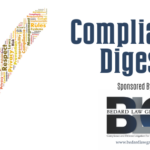In a case that was defendant by Mitch Williamson at Barron & Newburger, a District Court judge in Pennsylvania has granted a defendant’s motion for summary judgment in a Fair Debt Collection Practices Act case in which the plaintiff claimed he did not procure the underlying debt and that the defendant falsely reported it to the credit reporting agencies.
The Background: The plaintiff claimed to have learned of a debt obligation to WebBank while checking his credit report on Credit Karma. Believing the debt was not his, the plaintiff filed suit, alleging the defendant violated the FDCPA by misrepresenting itself while trying to collect on a debt.
The Ruling: In support of its motion for summary judgment, the defendant submitted three affidavits — one from the vice president of product management for the creditor that originated the debt, one that declare the plaintiff received a Truth in Lending disclosure that provided the terms of the loan and identified WebBank as the lender, and one from the defendant. While the plaintiff claimed the affidavits lacked language indicating that they were made on personal knowledge and showed that the affiants were competent to testify on these matters, nor did they mention they were signed under the penalty of perjury, those technicalities were not enough to convince Judge W. Scott Hardy of the District Court for the Western District of Pennsylvania that they should be disregarded.
- The plaintiff “makes far too much of the absence of specific words from the declarations,” Judge Hardy wrote. The declarations were “enough to show personal knowledge that the matters discussed in the declarant’s statement ‘would, in fact, be within the sphere of [the declarant’s] own knowledge.’ “
- Judge Hardy did dismiss a motion from the defendant to have the plaintiff bear the costs of its attorney’s fees.









